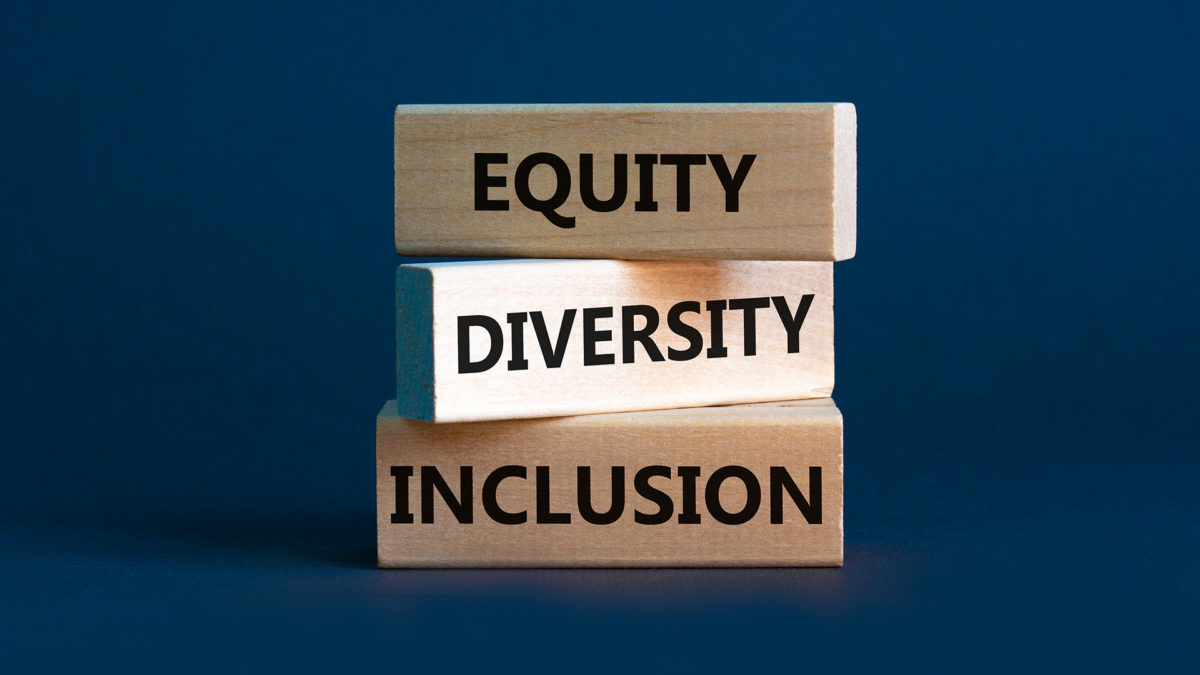By CA magazine
23 February 2022
ICAS CEO Bruce Cartwright explains the strategic importance of EDI

Anne-Marie Imafidon, CEO of Stemettes, wrote in CA magazine recently: “We can’t just assume that people will become accountants for the same reasons that others have become accountants in the past.” She encapsulates why equality, diversity and inclusion (EDI) is so important to ICAS and accountancy. In addition to the moral imperative to improve accessibility, we want a healthy pipeline of talent for the profession – particularly now the pandemic appears to have triggered a “great resignation”.
As CEO of a large organisation, with an even larger sphere of influence, I struggle to put myself in the shoes of someone who is sceptical about EDI’s role in accountancy. The business case is clear. I want ICAS to have access to the best talent available. I want to work with people who have ideas I couldn’t have thought of myself.
That ethos should form a central pillar of ICAS, guiding how we make decisions. I usually ask sceptics of EDI: what rational management team would choose to make anyone feel unwelcome? Do so, and more competitive organisations will leave you in their wake.
My journey with EDI began when I was young. With a military father, my early years were spent abroad and my formative memories are of attending nursery school in Hong Kong. Young children don’t care what makes them different from each other – they just see other young children. I was reminded of that when I became a parent: we have an obligation to encourage that sense of inclusion from day one. Bias, sometimes prejudice, evolves over time, based on individual experiences and the society in which we’re raised.
That was the second lesson I learned: we all have unconscious bias. I trained as a CA with Price Waterhouse. It displayed leadership in educating employees on EDI at a time when it wasn’t seen as a business imperative. Taking a training course on unconscious bias in the 1990s, I was surprised to see situations far more familiar to my own environment than I had expected. I recognised instances where I could have been more vocal about the values of equality I hold important. I left work that day feeling uncomfortable, realising the influence I had as an individual and how I could better use it to support colleagues.
That experience of being challenged and feeling uncomfortable is a necessary one. It encourages us to look inward and interrogate how our actions reflect our values and what we want to say to the world around us. That’s why we each have an important role in EDI. It’s not enough to simply consider oneself a moral person who has the best of intentions – we need to be proactive.
Walking the talk
When I took up the CEO role, I wanted to apply those lessons to ICAS. We were at the beginning of the conversation – not having fully translated the talk into the walk. We needed something tangible that members could grasp. That’s the crucial part which is essential in earning the trust of both our members and the public, safeguarding the future of the profession.
We began by establishing a working group, which very quickly became a permanent committee reporting straight into ICAS Council. The EDI Committee, and the hiring of EDI Manager Ian Bettison, helped provide the expertise needed to introduce our new strategy in 2021. Now, our activities span the entire organisation: research on the composition and expectations of members; training for staff; inclusive job specifications; guidance to committee chairs on running diverse panels; embedding EDI in the Code of Ethics; the Championing Unique Perspectives campaign; and much more. I encourage members to discover the breadth of this activity and get involved by following the link below.
In addition, I hope the success of the ICAS Foundation, which has helped more than 260 students from less advantaged backgrounds pursue degrees in finance over the past decade, is testament to our commitment to making accountancy accessible with the help of member donations. Foundation students are not required to go on to be CAs. It is instead about recognising talent doesn’t come from any single background and equipping people with the education and experience that will, in turn, give them more opportunities. The work our mentors do is inspiring, giving students a direct line to speak to a working CA.
The CA qualification is often referred to as a passport to business, but it’s also a passport to opportunity. ICAS has a crucial role to play in ensuring this passport is open to anyone with both the interest and the ability. Not just because it’s the right thing to do, but because there is a clear business risk to sitting still and doing nothing. By embracing EDI, we make accountancy and business stronger, more efficient and more resilient.
For more ICAS activity in this space visit Finance + EDI.












